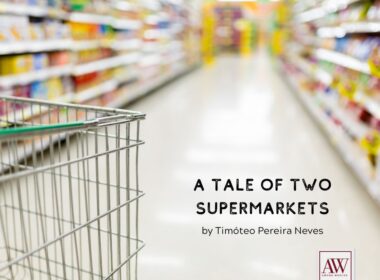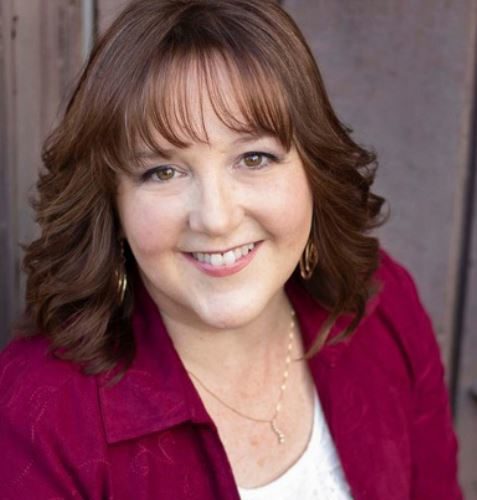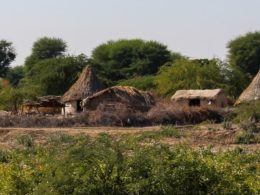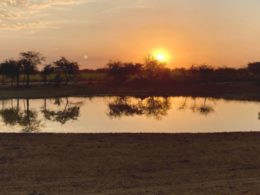This issue’s Spotlight TCK may have spent her childhood playing in a castle, but her life was not exactly a fairy tale. Nevertheless, she is able to draw deeply from her TCK life experiences in writing her own stories. We’re excited to introduce you to author, speaker, and TCK mentor Michèle Phoenix.
Raised in France by a Canadian father and an American mother, Michèle has a big heart for TCKs. She taught for twenty years at Black Forest Academy in Germany before launching her own ministry advocating for third culture kids. She now travels globally to consult and teach on topics related to our unique tribe. Michèle loves good conversations, mischievous students, and Marvel movies. Enjoy our conversation, and we hope that you will also check out her novels!
Tell us a bit about your experience as a TCK.
I was born in France to a Canadian father and an American mother. They taught music at the European Bible Institute just north of Paris…which happened to be housed in a seventeenth century castle! So not only did I get to grow up in France, but I spent the better part of my time playing in the hallways and grounds of a place most people can only imagine.
There was a lot I loved about my French years. The language. The cultural quirks. The croissants! But there were also aspects of my childhood that were challenging because of the fatalism and educational style I was steeped in. It didn’t help that I was a naturally shy and sensitive child. Great for playing make-believe in a castle—not so great for overcoming the harsh realities of a culture that wasn’t “built” for people like me.
When did you discover that you were a TCK?
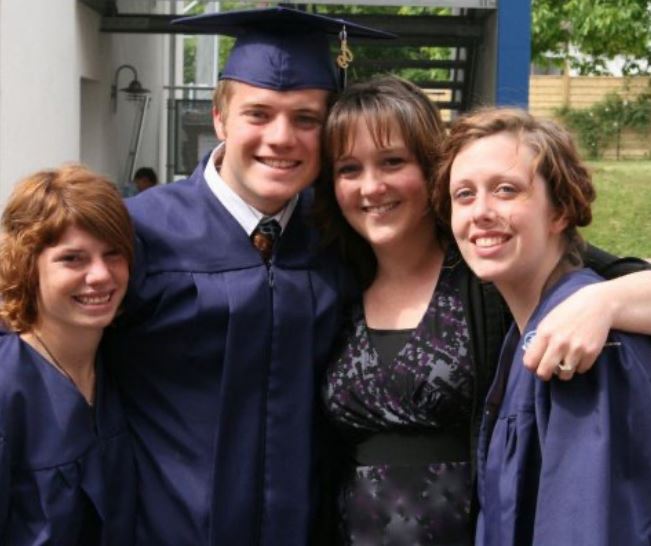
When I was thirteen, I left the French educational system to move to Black Forest Academy (BFA) in Germany. The goal was to prepare me for college in the US, but there was so much more richness than that to my time there. Within days of setting foot on the campus in 1982, I knew that I’d found kindred souls. The French-American-Canadian child I was had never felt “normal”—not in the States, not in Canada, and not entirely in France. BFA became home to me. My heart-home. My belonging-home. My I’m-not-weird-home. My someone-actually-understands-me-home. If you cram enough identity-confused teenagers into a small space, their abnormalities become the norm and there was so much comfort in that! There was healing in it too. Great healing. Particularly as I had been reduced to a chronically depressed and introverted teenager by the time I started there.
I’ve found that a majority of TCKs of all ages carry something that bears exploring and addressing in order to find health and freedom.
Can you share a bit more about the difficulties of your early childhood in France?
That’s the thing. My childhood in France was absolutely magical! And it was also hard. It’s taken me a lifetime to understand that admitting to (and processing) the one does not invalidate the other. I can hold the precious in one hand and the brutal in the other hand and allow both to breathe. Only then am I living in the fullness of my life’s experience.
The hard parts for me were the French school system in my small town. The teachers seemed to believe that fear and pain were the best way to motivate their students, so it wasn’t uncommon for them to openly tell me that I was stupid and wouldn’t ever amount to anything. To pinch a nerve in my shoulder until my arm went numb or pull my ear until it bled. To put a dunce cap (a hat with donkey ears sticking out of it) on my head and instruct my classmates to mock me.
I came away from those years assuming that it was normal for any adult in authority over me to treat me with cruelty and dismissiveness.
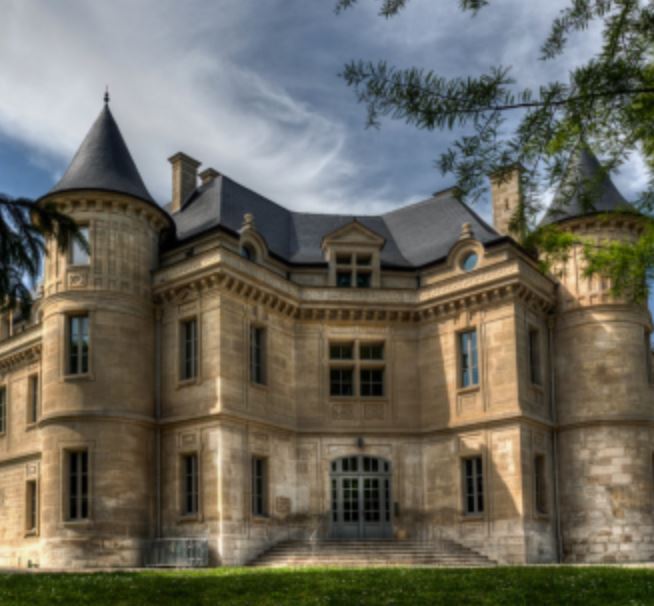
Add to that a couple instances of abuse (at the hands of a stranger and a fellow MK) and a highly dysfunctional family, and it’s not surprising that my sensitive spirit needed some help sifting through the debris years later.
Although the traumas of my childhood are unique to me, I’ve found that a majority of TCKs of all ages carry something that bears exploring and addressing in order to find health and freedom. I’m grateful for the people in my life—friends, family, and professionals—who walked with me as I untangled the Hard from the Good.
How have you experienced your TCK-ness as an asset in your career? In your personal life?
My entire career has been focused on TCKs. After a brief stint as a screenwriter right after college, I returned to Germany to teach at BFA. I had no teaching degree, mind you, but we all know that sometimes the best degree on the mission field is having a pulse! So, for two decades, I got to teach music, creative writing and English, direct choirs and school plays, volunteer in residences—and anything else that would allow me to spend time with my students. Viewing their world from an adult perspective as I observed them grappling with factors that I saw in my life was enlightening and crystalizing for me. Healing too.
It’s because of those years—and a cancer scare—that I reluctantly gave in to God’s prompting and left a place I loved to launch a more global ministry in 2010, still focused on TCKs, but with a broader and more diverse footprint. Everything I do today is informed not only by the blessings and healing in my own life, but also by those students whose names are engraved on my lifeline in the most beautiful and permanent way.
You’ve published a number of novels. How does your TCK-ness affect your writing? Do any TCK themes or characters make their way into your fiction?
All of my novels are “destination novels.” They allow me to introduce people to places I love—like Germany, France, Nepal, England, and Austria. I find the process of translating cultural nuances and geographical details into factors that advance a story an absolutely fascinating process. How to describe the rhythm of the French language? How to put into words the chaos of Nepali traffic? How to convey the subtleties of an Austrian mountain village after dark? My TCK-ness, I hope, allows me to sense and define what might go unnoticed by others, and I love that superpower.
My TCK-ness allows me to sense and define what might go unnoticed by others.
Although In Broken Places takes place in Kandern, Germany, it does not focus on the TCK students there. But Of Stillness and Storm is entirely ministry-centered. It follows a young couple from Bible school in the Austrian Alps to Kathmandu, Nepal. Author Elizabeth Musser’s review states that it’s “The Poisonwood Bible for a new generation.” To me, it’s a cautionary tale—the autopsy of a family that did all the right things for questionable reasons, never foreseeing the collateral damage their lack of judgment and self-awareness would cause. All my novels are available wherever books are sold.
Have you struggled with or embraced the idea of “settling down” in one location? What does that look like for you?
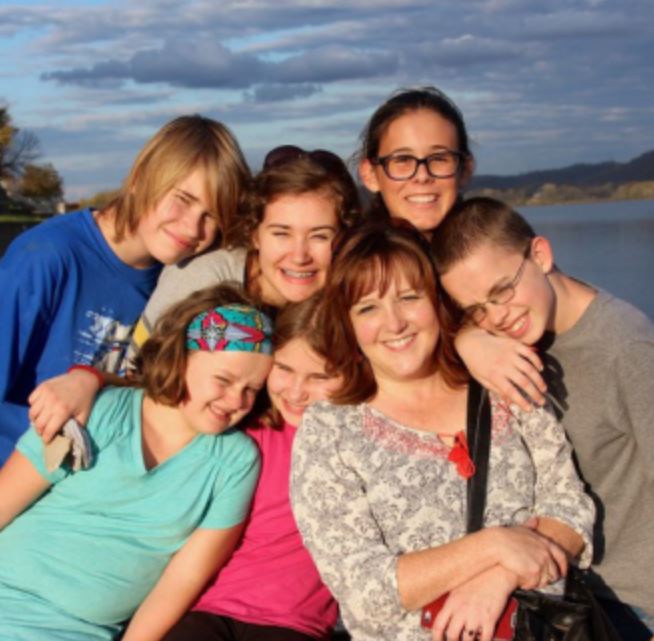
I’ve been fortunate enough to “settle down” in the States, while being engaged in a work that still allows me to travel. I think I’ve returned to Europe every year since moving stateside in 2010! I know that’s a rare privilege and I’m so grateful for that.
What do you wish you had known growing up as a TCK? What supports do you wish you had had access to?
I wish someone had pointed out to me the “marvelous-ness” of growing up between worlds. I was viscerally aware of the challenges, and adults who thought they were preparing me for the future only reinforced the fears I carried. But I don’t remember a whole lot of talk about the unique gifts we receive—along with the challenges—by virtue of our parents choosing to raise us in other cultures. Had I been more focused on those, while still wrestling with the inevitable trials that come along with being a hidden immigrant growing up in the intense world of ministry, I would have had a much more balanced view of myself, the world and God.
What is one of the greatest attributes that TCKs contribute to our world today?
TCKs are natural bridge-builders. The very fact that we don’t fully belong anywhere is the reason we’re able to chameleon our way into subcultures and contexts with more dexterity than our mono-cultural peers. We’re able to use our powers of adaptation to view well-defined groups through a broader lens, to understand what makes them tick, what their strengths and challenges are, and how to gently instigate change. I often say that our response to a lingering sense of unbelonging shouldn’t be to do all we can to conform. It should be to actually celebrate the blessing of “mostly belonging in multiple places,” because it’s from that gift that we draw our ability to bridge gaps and enhance understanding between unalike cultures and subcultures. This is the reason TCKs are so prized in the workplace, and why we have what it takes to bring understanding and change in both small and significant ways.
Our response to a lingering sense of unbelonging shouldn’t be to do all we can to conform.
In your work with MKs and TCKs, what are some current trends or issues you see in younger-generation TCKs?
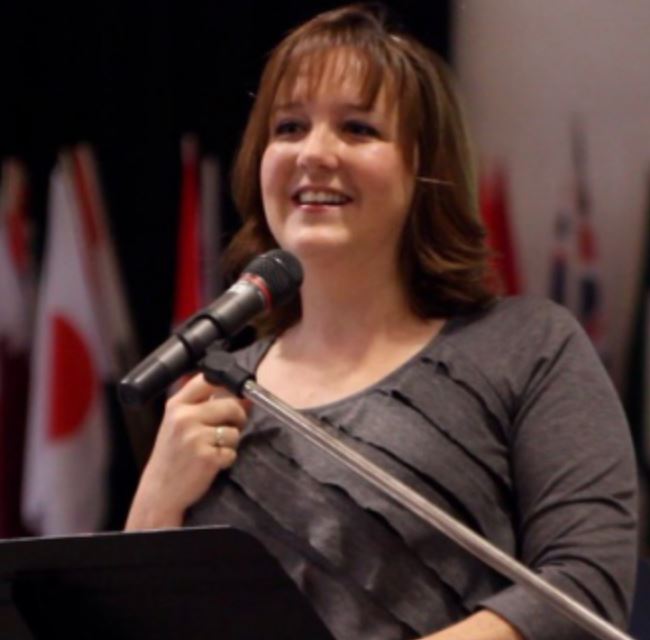
I just released an article on faith deconstruction last week on my blog. This is perhaps the most obvious trend I’ve observed in recent years. TCKs who grow up in intensely spiritual contexts are finding their relationship to faith challenged by the cultural, political, and social realities they’re facing as they move on from the ministry cocoon—and for many of them, stripping Christianity down to its bones and discovering what it was originally meant to be has become not just a necessity, but an intense drive.
Deconstruction gets a bad rap in some circles. It’s assumed to be a rejection of faith and of the Church. But I’ve seen deconstruction (or “unbundling”) be a crucial phase of a journey that includes exploring, understanding, and often embracing the faith we grew up with—albeit sometimes different from the form in takes in our parents’ lives.

Born in France to a Canadian father and an American mother, Michèle is a consultant, writer, and speaker motivated by a deep passion for third culture kids. After teaching for twenty years at Black Forest Academy (Germany), she launched her own ministry, equipping TCKs for flourishing, while offering those who care for them the information they need to love them well. Michèle travels globally to consult and teach, drawing from her thirty years of experience in TCK spaces. Her articles, novels and podcast are available on her website: michelephoenix.com. Michèle loves good conversations, mischievous students, French pastries, and paths to healing.
Website: michelephoenix.com
Twitter: @FrenchPhoenix
Instagram: Shellphoenix
Pondering Purple Podcast: https://anchor.fm/michele-phoenix


